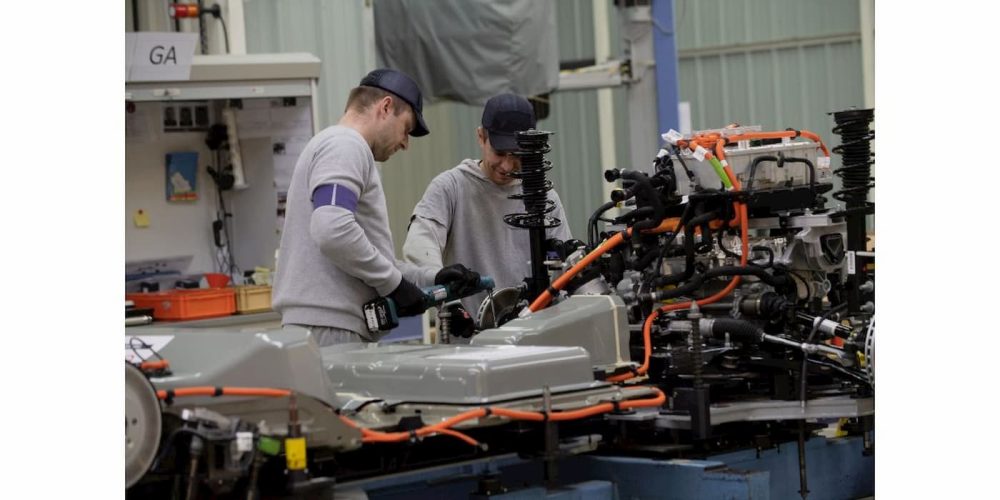
Have you wondered what the process looks like behind testing an electric vehicle battery? Today, French automaker Peugeot is giving us a closer look at how its technicians put together and test each battery for its EV lineup.
Stellantis-owned Peugeot has a rich history of making automobiles. In fact, Peugeot was founded in 1810, but didn’t start making vehicles until 1896.
The French automaker is part of the French manufacturing giant PSA Group, which also owns DS and Citroen. Peugeot’s symbol, the lion, was initially featured on the company’s saw blades and is now a symbol of toughness and strength.
Peugeot has withstood the test of time and is now setting its sights on the future. According to the company’s CEO, Linda Jackson, the brand will offer all models in electric by 2025. The parent company, Stellantis, is targeting 100% EV sales in Europe and 50% in the US by 2030. Meanwhile, the EU is proposing a ban on fossil fuel cars by 2035.
Currently, Peugeot offers four EV models, including the Peugeot e-208 city car, the e-2008, a compact EV SUV, and the e-Rifter with up to seven seats. The automaker also offers the e-traveler – a fully electric van.
Today Peugeot is giving us a glimpse of what it takes to build these models and how critical each step can be.

Peugeot shows us what it takes to test and assemble EV batteries
Peugeot’s technicians are trained in Spain, Slovakia, and France before arriving at the factory. Creating EV batteries is not an easy task; it can take significant time and resources.
For example, Peugeot estimates it can take about an hour for each 50kWh battery while larger batteries take 90 minutes. The testing takes about 15 minutes and is necessary before sending off.
- The first thing Peugeot technicians do is simulate operating the battery in a vehicle.
- They then test the battery at full rate for performance.
- And lastly, it’s checked for leaks.
Since all EV batteries are tested, Peugeot says it’s guaranteed an 8-year/160,000 kilometer (almost 100,000 miles) warranty for 70% of its charge capacity. Achieving the automaker’s EV goal will take a significant amount of batteries; Peugeot predicts it will need 10,000 batteries monthly by 2023 and 7,000 for its commercial EV.
As a result, Peugeot and Stellantis plan on hiring additional qualified technicians to test their EV batteries and models.
Subscribe to Electrek on YouTube for exclusive videos and subscribe to the podcast.
Author: Peter Johnson
Source: Electrek



